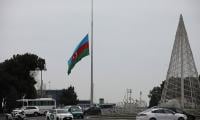The Belt and Road Initiative (BRI) is part of China’s grand strategy for a peaceful, prosperous and beautiful world.
President Xi Jinping summarised China’s grand strategy by putting forward the vision of a community with a shared future. He launched four global initiatives – Belt and Road Initiative, Global Security Initiative, Global Development Initiative and Global Civilisation Initiative – for the purpose.
Belt and Road Initiative was the first programme. It was designed to cater to the needs of people – decent employment, poverty eradication, quality infrastructure, etc. It was envisioned the objectives of BRI would be achieved by investing in infrastructure, industrial base and revolutionising agriculture among others.
China was cognizant that achieving these objectives would be meaningless if the environmental needs and emerging challenge of climate change are ignored or undermined. Hence, during the second BRI forum in 2019, it tasked BRI-relevant Chinese ministries, institutes and companies to lead the discourse and path in promoting green and environment-friendly development under the BRI.
Ministry of Ecology and Environment, National Development and Reforms Commission, Ministry of Commerce and other institutions joined hands to realise the dream of green and environment-friendly development.
These ministries and institutes launched numerous initiatives. These include Green Silk Road Envoys Programme, BRI Environmental Big Data Platform, Belt and Road South-South Cooperation Initiative on Climate Change, Belt and Road Green Lighting Initiative, Belt and Road Green Cooling Initiative, Belt and Road Bankers Roundtable Mechanism, Belt and Road Green Cooling Initiative and BRI International Green Development Coalition (BRIGC).
Being the focal ministry of BRI, the National Development and Reform Commission is working to design and execute the projects according to the principles of sustainable development and ecological civilisation. NDRC is closely working with the Ministry of Ecology and Environment to develop comprehensive guidelines and policies for implementing the green BRI agenda.
NDRC, in collaboration with the Ministry of Ecology and Environment and others, introduced new guidelines on March 28, 2022 to foster implementation of the vision of green BRI. The Ministry of Finance and Ministry of Commerce are also playing their role in executing the agenda of green BRI.
The BRI International Green Development Coalition (BRIGC) is one of the most important initiatives to realise the dream of green and environment-friendly development. It is a joint venture of the Ministry of Ecology and Environment and over 100 international intergovernmental and non-government organisations. Many BRI member countries’ environmental and climate change ministries have also joined BRIGC. The Ministry of Ecology and Environment is hosting BRIGC and leading the implementation of its agenda.
The BRIGC came into existence with three specific objectives: promote policy dialogue and communication, act as an environment knowledge platform, and technology transfer platform. It was envisioned BRIGC would assist in changing the mindset of policymakers and help integrate sustainable development principles into the design, execution and implementation of BRI projects.
BRIGC, under the auspices of the Ministry of Ecology and Environment, has forged close partnerships with NDRC, Ministry of Finance, Ministry of Commerce, companies and other institutions to achieve the prescribed objectives. It also assists them in creating knowledge and policy guidelines and steering the policy dialogue with stakeholders.
BRIGC has ten thematic areas – biodiversity and ecosystem management; green energy and energy efficiency; green finance and investments; improvement of environmental quality and green cities; south-south environmental cooperation and SDG capacity building; green technology, innovation and corporate social responsibility; sustainable transportation, climate change governance and green transformation; environmental legislation and standards; maritime community with a shared future and marine environment governance. The list shows all the essential areas for building a green and sustainable future have been covered.
Since its launch, GRIGC has been striving hard to change the mindset and promote green growth and development policies. It has launched numerous initiatives on multiple fronts. It started the work by engaging institutions to build a global movement for green growth and development. It has involved various stakeholders in policy dialogue and research projects.
BRIGC promotes open and transparent dialogue among governments, intergovernmental organizations and non-government organisations. The dialogue and communication process has accelerated during the last two years.
The continuous engagement is bearing fruit, and BRI countries are focusing more on designing and executing projects by adhering to principles of sustainable development. It is helping to mainstream the agenda of green growth and environment-friendly development under the BRI.
BRIGC is equally focused on the creation of quality knowledge.
It has launched several projects and commissioned studies to understand the needs of the member countries and provide policy guidance to them for green transition.
A few examples are the BRI Green Development Case Study Report 2020, BRI and Carbon Pricing Mechanism, Biodiversity Areas and Impact Assessment in BRI-covered Areas etc.
BRIGC is also busy issuing different reports and policy documents to guide the implementation of green BRI. For example, in 2020 it developed and issued Green Development Guidance for BRI Projects Baseline Study (GDG).
It again developed and published Application Guide for Enterprises and Financial Institutions and Guide for Railways and Highways Infrastructure Sectors for the GDG in 2021.
These are a few examples of the success story. The good thing is that BRIGC is not content with it. It is working to enhance its impact further. BRIGC is also coordinating with the Ministry of Ecology and Environment to make the upcoming high-level Green BRI forum a success. It is in the process of engaging stakeholders from across the world.
However, there are certain areas where BRIGC can further refine its work. First, BRIGC should launch a special initiative for youth engagement. Youth engagement will ensure sustainability of BRIGC activities and carry forward the message of green BRI.
It will also help disseminate the message on a grander scale. Youth engagement will help promote a culture of innovation and technology adaptation.
Second, there should be some dedicated initiatives for young girls. BRIGC should launch a “Girls Alliance for Green BRI”. The proposed alliance should be mandated to promote females’ role in policymaking and implementation.
Third, BRIGC should include agriculture and livestock theme in its list of thematic areas. It would be easier for it because agriculture is emerging as one of the significant areas of cooperation under BRI. Agriculture is one of the major areas of collaboration in the second phase of CPEC.
The inclusion of agriculture is needed because it plays multiple roles in achieving sustainable development goals. It helps developing and least-developed countries secure food security and provide low-cost raw materials. It is also a major source of employment and income for many developing nations.
Agriculture is important because it is a leading emitter of GHG in developing countries. Many of these countries are BRI members. They need help to lower emissions without compromising the agriculture sector’s economic and development role.
BRIGC should create a dedicated group at the secretariat and develop sustainable and climate change smart agriculture guidelines under the BRI to guide the member countries.
In conclusion, it is hoped BRIGC, under the auspices of Ministry of Ecology and Environment, will continue to innovate the path for smooth implementation of green BRI agenda. Moreover, it will continue to assist NDRC, the Ministry of Finance and the Ministry of Commerce by providing them with high-quality knowledge and leading the policy dialogue and discussion on the agenda.
This article reflects on key sporting moments, featuring Pakistan’s triumphs and shortcomings throughout 2024
JUIF’s legal adviser, Senator Kamran Murtaza, is also engaged in consultation process
Sit-in Action Committee decides to call a grand jirga for recovery of Muasawar Kakar
Abbasi says that neither government nor opposition sincerely intended dialogue







